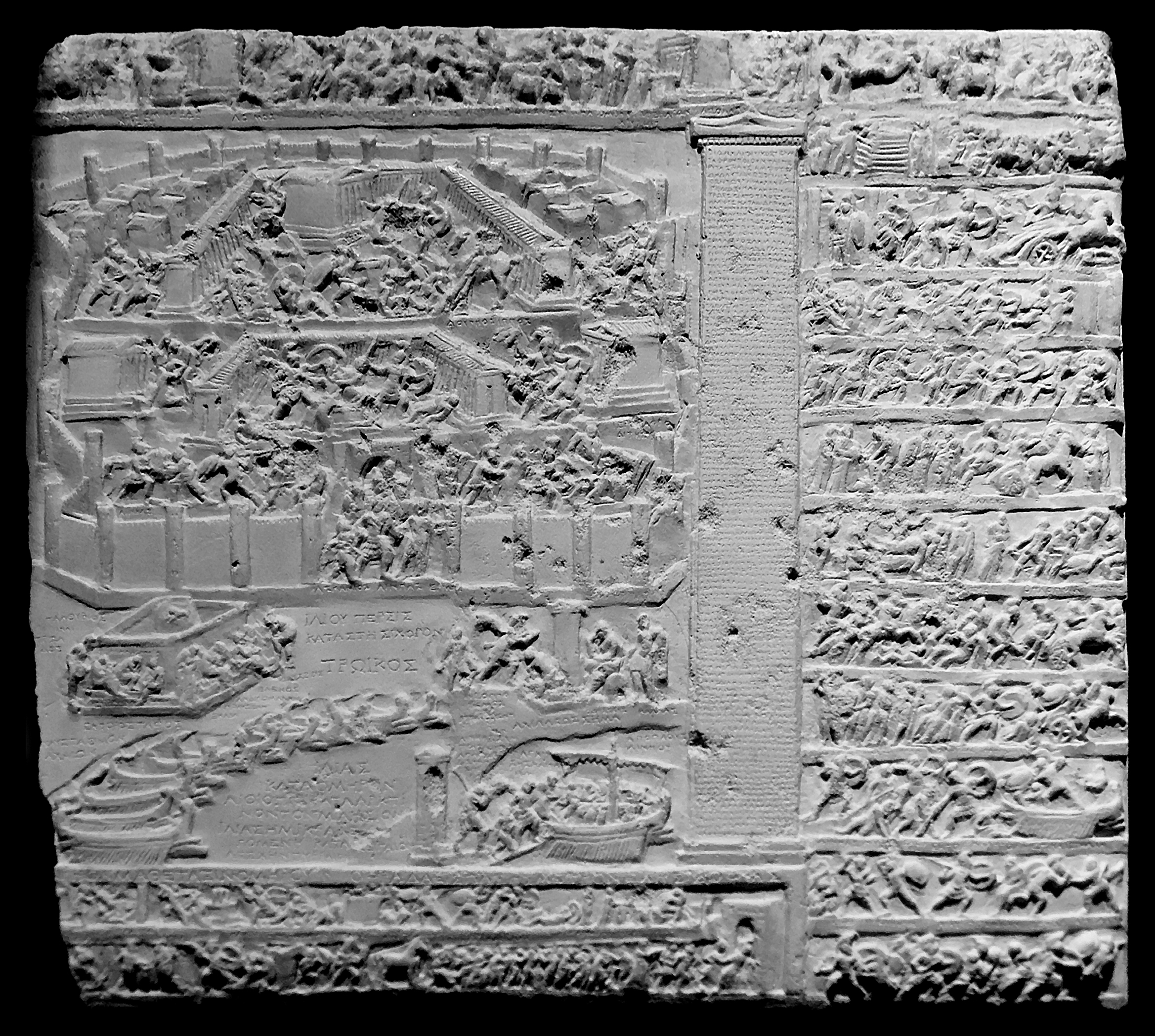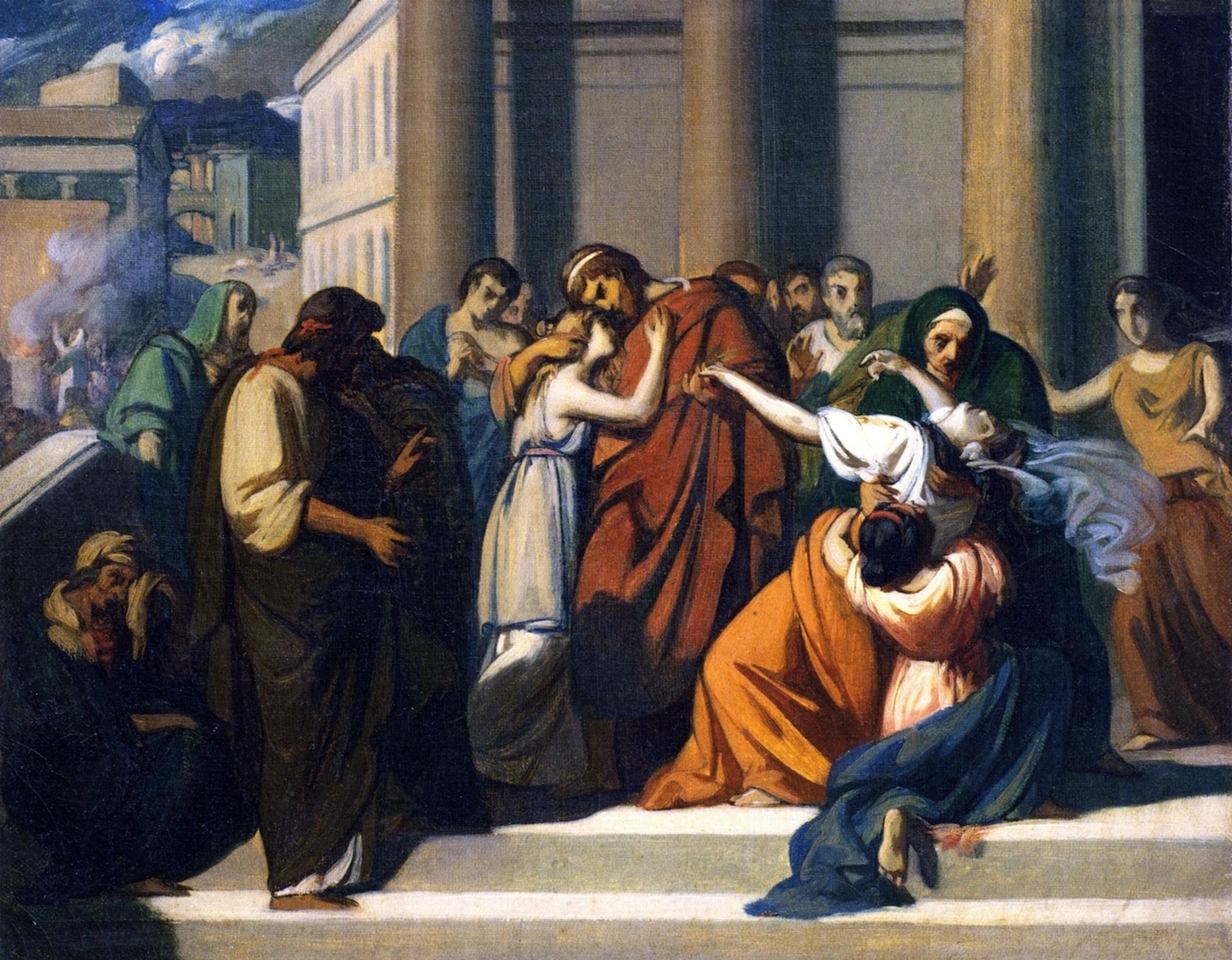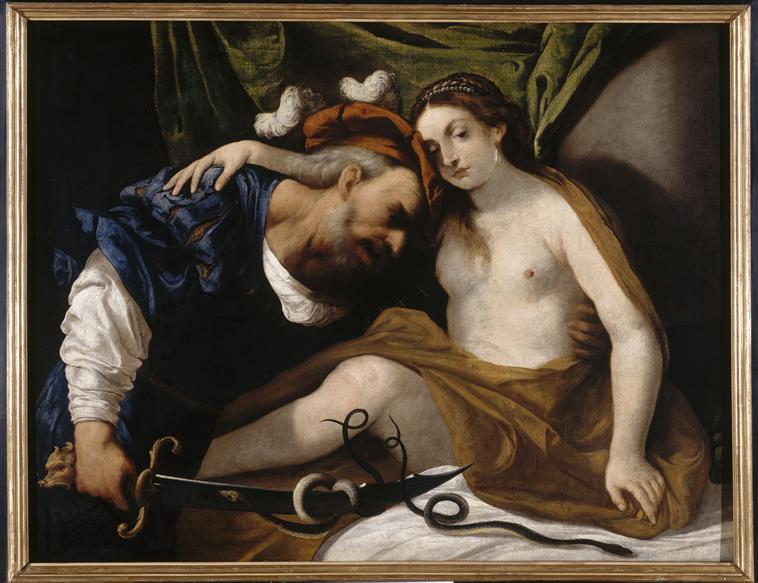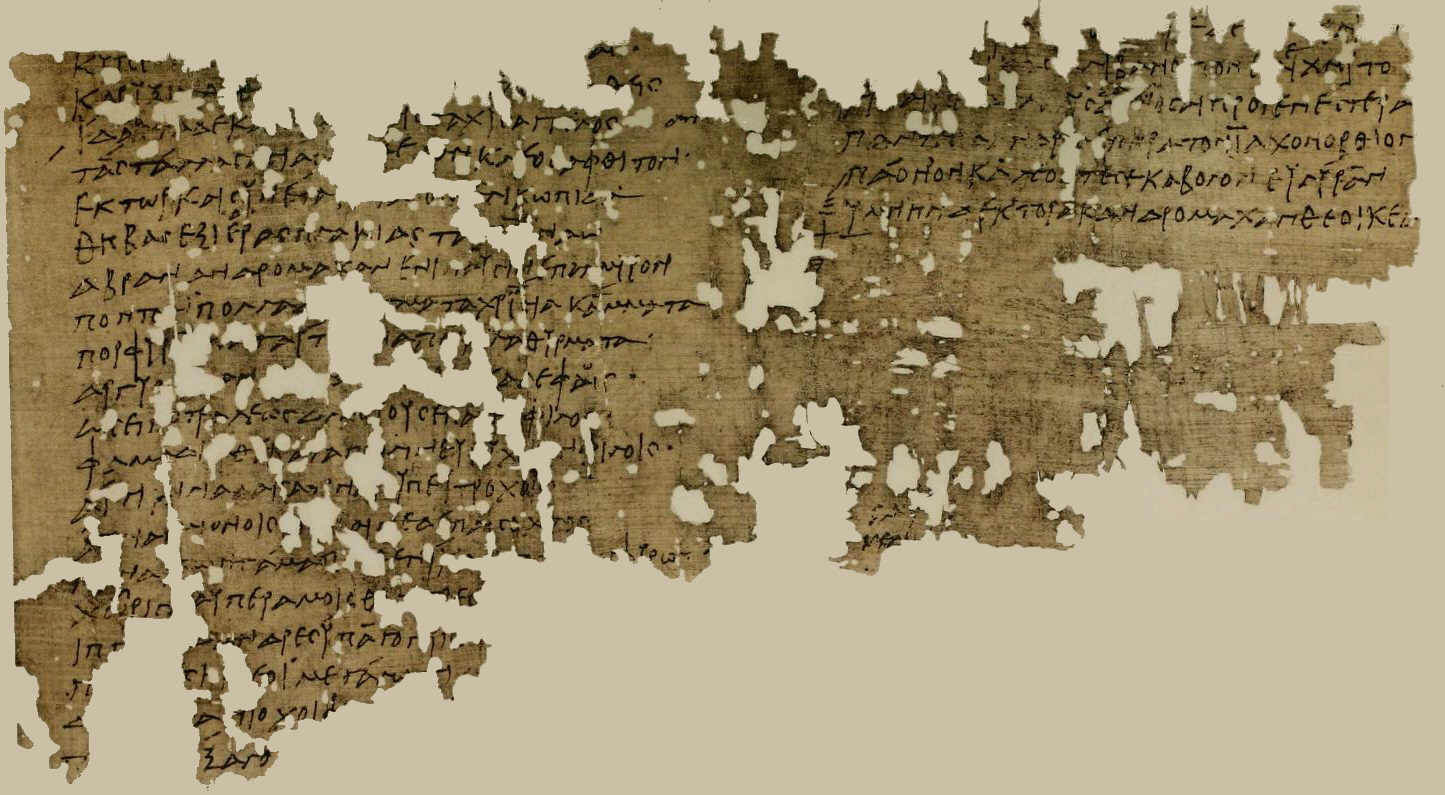|
Lille Stesichorus
The Lille Stesichorus is a papyrus containing a major fragment of poetry usually attributed to the archaic lyric poet Stesichorus, discovered at Charles de Gaulle University - Lille III, Lille University and published in 1976. It has been considered the most important of all the Stesichorus fragments, confirming his role as an historic link between genres as different as the epic poetry of Homer and the lyric poetry of Pindar. The subject matter and style are typical of his work generally but not all scholars have accepted it as his work. The fragment is a narrative treatment of a popular myth, involving the family of Oedipus and the tragic history of Thebes, Greece, Thebes, and thus it sheds light on other treatments of the same myth, such as by Sophocles in ''Oedipus Rex, Oedipus Tyrannos'' and Aeschylus in ''Seven Against Thebes''. The fragment is significant also in the history of colometry since it includes lyric verses that have been divided into Prosody_(Latin)#Cola:_a_differe ... [...More Info...] [...Related Items...] OR: [Wikipedia] [Google] [Baidu] |
Stesichorus
Stesichorus (; grc-gre, Στησίχορος, ''Stēsichoros''; c. 630 – 555 BC) was a Greek lyric poet native of today's Calabria (Southern Italy). He is best known for telling epic stories in lyric metres, and for some ancient traditions about his life, such as his opposition to the tyrant Phalaris, and the blindness he is said to have incurred and cured by composing verses first insulting and then flattering to Helen of Troy. He was ranked among the nine lyric poets esteemed by the scholars of Hellenistic Alexandria, and yet his work attracted relatively little interest among ancient commentators, so that remarkably few fragments of his poetry now survive. As David Campbell notes: "Time has dealt more harshly with Stesichorus than with any other major lyric poet." Recent discoveries, recorded on Egyptian papyrus (notably and controversially, the Lille Stesichorus),P.J. Parsons, "The Lille Stesichorus", ''Zeitschreift für Papyrologie und Epigraphik'' Vol. 26 (1977), pages 7� ... [...More Info...] [...Related Items...] OR: [Wikipedia] [Google] [Baidu] |
Bacchylides
Bacchylides (; grc-gre, Βακχυλίδης; – ) was a Greek lyric poet. Later Greeks included him in the canonical list of Nine Lyric Poets, which included his uncle Simonides. The elegance and polished style of his lyrics have been noted in Bacchylidean scholarship since at least Longinus. Some scholars have characterized these qualities as superficial charm.Burnettn 1985, p. 3 He has often been compared unfavourably with his contemporary, Pindar, as "a kind of Boccherini to Pindar's Haydn".Slavitt (1998), p. 1 However, the differences in their styles do not allow for easy comparison, and translator Robert Fagles has written that "to blame Bacchylides for not being Pindar is as childish a judgement as to condemn ... Marvell for missing the grandeur of Milton". His career coincided with the ascendency of dramatic styles of poetry, as embodied in the works of Aeschylus or Sophocles, and he is in fact considered one of the last poets of major significance within the more anc ... [...More Info...] [...Related Items...] OR: [Wikipedia] [Google] [Baidu] |
The Phoenician Women
''The Phoenician Women'' ( grc, Φοίνισσαι, ''Phoinissai'') is a tragedy by Euripides, based on the same story as Aeschylus' play ''Seven Against Thebes''. It was presented along with the tragedies ''Hypsipyle'' and '' Antiope.'' With this trilogy, Euripides won the second prize. The title refers to the Greek chorus, which is composed of Phoenician women on their way to Delphi who are trapped in Thebes by the war. Unlike some of Euripides' other plays, the chorus does not play a significant role in the plot, but represents the innocent and neutral people who very often are found in the middle of war situations. Patriotism is a significant theme in the story, as Polynices talks a great deal about his love for the city of Thebes but has brought an army to destroy it; Creon is also forced to make a choice between saving the city and saving the life of his son. Euripides wrote the play around 408 BC, amid military disasters for his homeland, Athens. Plot The play opens with ... [...More Info...] [...Related Items...] OR: [Wikipedia] [Google] [Baidu] |
Epicaste
Epicaste (; Ancient Greek: Ἐπικάστη ''Epikaste'') or Epicasta () is a name attributed to five women in Greek mythology. *Epicaste, a Calydonian princess as daughter of King Calydon by Aeolia, daughter of Amythaon, and thus, sister of Protogeneia. She married her cousin Agenor, son of King Pleuron, and had by him children: Porthaon, Demonice, and possibly Thestius. *Epicaste, an Elean princess as daughter of King Augeas. She bore Heracles a son, Thestalus. *Epicaste, another name for Jocasta/Iocaste, used by Homer. *Epicaste, wife of Clymenus, son of Teleus of Argos, and mother of Harpalyce, Idas, and Therager. *Epicaste, daughter of Nestor and mother of Homer himself by Telemachus, son of Odysseus. Notes References * Apollodorus, ''The Library'' with an English Translation by Sir James George Frazer, F.B.A., F.R.S. in 2 Volumes, Cambridge, MA, Harvard University Press; London, William Heinemann Ltd. 1921. ISBN 0-674-99135-4Online version at the Perseus ... [...More Info...] [...Related Items...] OR: [Wikipedia] [Google] [Baidu] |
Jocasta
In Greek mythology, Jocasta (), also rendered Iocaste ( grc, Ἰοκάστη ) and also known as Epicaste (; ), was a daughter of Menoeceus, a descendant of the Spartoi Echion, and queen consort of Thebes. She was the wife of first Laius, then of their son Oedipus, and both mother and grandmother of Antigone, Eteocles, Polynices and Ismene. She was also sister of Creon and mother-in-law of Haimon. Life After his abduction and rape of Chrysippus, Laius married Jocasta. Laius received an oracle from Delphi which told him that he must not have a child with his wife, or the child would kill him and marry her; in another version, recorded by Aeschylus, Laius is warned that he can only save the city if he dies childless. One night, Laius became drunk and fathered Oedipus with Jocasta. Jocasta handed the newborn infant over to Laius. Jocasta or Laius pierced and pinned the infant's ankles together. Laius instructed his chief shepherd, Menoetes (not to be confused with Menoetes ... [...More Info...] [...Related Items...] OR: [Wikipedia] [Google] [Baidu] |
Tiresias
In Greek mythology, Tiresias (; grc, Τειρεσίας, Teiresías) was a blind prophet of Apollo in Thebes, famous for clairvoyance and for being transformed into a woman for seven years. He was the son of the shepherd Everes and the nymph Chariclo. Tiresias participated fully in seven generations in Thebes, beginning as advisor to Cadmus himself. Mythology Eighteen allusions to mythic Tiresias, noted by Luc Brisson, fall into three groups: the first recounts Tiresias' sex-change episode and later his encounter with Zeus and Hera; the second group recounts his blinding by Athena; the third, all but lost, seems to have recounted the misadventures of Tiresias. Blindness and gift of prophecy Like other oracles, how Tiresias obtained his information varied: sometimes, he would receive visions; other times he would listen for the songs of birds, or ask for a description of visions and pictures appearing within the smoke of burnt offerings or entrails, and so interpret them. ... [...More Info...] [...Related Items...] OR: [Wikipedia] [Google] [Baidu] |
Labdakos
In Greek mythology, Labdacus ( grc, Λάβδακος, ''Lábdakos'') was the only son of Polydorus and a king of Thebes. Labdacus was a grandson of Thebes' founder, Cadmus. His mother was Nycteïs, daughter of Nycteus. Mythology Polydorus died while Labdacus was a young child, leaving Nycteus as his regent, although Lycus soon replaced him in that office. When Labdacus had grown, he ruled Thebes for a short time. He died while he was still young, after he lost a war with the king of Athens, Pandion, over their borders. Apollodorus writes that he, like his cousin Pentheus, was ripped apart by women in a bacchic frenzy for disrespect to the god Dionysus.'' Bibliotheca'' 3.5.5. Lycus became regent once more after his death, this time for Labdacus' son, Laius. His descendants were called the ''Labdacids'', and included his son Laius, who fathered Oedipus; Oedipus' children were Polynices, Eteocles, Antigone, and Ismene. Family tree of Theban Royal House Notes Ref ... [...More Info...] [...Related Items...] OR: [Wikipedia] [Google] [Baidu] |
Francisco Rodríguez Adrados
Francisco Rodríguez Adrados (29 March 192221 July 2020) was a Spanish Hellenist, linguist and translator. He worked most of his career at the Complutense University of Madrid. He was a member of the Real Academia Española and Real Academia de la Historia. Life Rodríguez Adrados was born on 29 March 1922 in Salamanca. He studied classical philology at the University of Salamanca, where he obtained a degree in 1944. He later obtained a doctorate in classical philology from the Complutense University of Madrid. Rodríguez Adrados became a teacher of Greek at the Instituto Cardenal Cisneros in Madrid in 1949. Two years later, he became a professor at the University of Barcelona and the next year, he moved to the Complutense University of Madrid, where he worked until his retirement. He worked as a translator of Ancient Greek and Sanskrit texts. He was considered to be an expert on Ancient Greek. Rodríguez Adrados died on 21 July 2020 in Madrid, aged 98. Awards and honors For ... [...More Info...] [...Related Items...] OR: [Wikipedia] [Google] [Baidu] |
Edgar Lobel
Edgar Lobel (24 December 1888 – 7 July 1982) was a Romanian-British classicist and papyrologist who is best known for his four decades overseeing the publication of the literary texts among the Oxyrhynchus Papyri and for his edition of Sappho and Alcaeus in collaboration with Denys Page. His contributions to the fields of papyrology and Greek studies were many and substantial, and Eric Gardner Turner believed that Lobel should "be acknowledged as a scholar to be mentioned in the same breath as Porson and Bentley, a towering genius of English scholarship." Early life and education Lobel was born in Iași, Romania on 24 December 1888. As a youth he moved to Higher Broughton with his parents Amelia and Arthur Lobel, a shipowner. He was educated at Kersal School before moving on to Manchester Grammar School where he was head boy and won a scholarship to Balliol College, Oxford in 1906. Despite the fact that his father had been compelled by poverty to emigrate to the United Sta ... [...More Info...] [...Related Items...] OR: [Wikipedia] [Google] [Baidu] |
Denys Page
Sir Denys Lionel Page (11 May 19086 July 1978) was a British classicist and textual critic who served as the 34th Regius Professor of Greek at the University of Cambridge and the 35th Master of Jesus College, Cambridge. He is best known for his critical editions of the Ancient Greek lyric poets and tragedians. Coming from a middle-class family in Reading, Page studied classics at Christ Church, Oxford, and served the college as a lecturer for most of the 1930s. He spent the Second World War working on Ultra intelligence material at the Government Code & Cypher School based at Bletchley Park. In 1950, he was elected Regius Chair of Greek at Cambridge which he held until his retirement in 1973. Initially a fellow of Trinity College, Cambridge, Page was appointed master of the university's Jesus College in 1959. He died of lung cancer in 1978. Having published an edition of the poets Sappho and Alcaeus with fellow Oxford classicist Edgar Lobel, Page went on to write the stand ... [...More Info...] [...Related Items...] OR: [Wikipedia] [Google] [Baidu] |
Theodor Bergk
Theodor Bergk (22 May 181220 July 1881) was a German philologist, an authority on classical Greek poetry. Biography He was born in Leipzig as the son of Johann Adam Bergk. After studying at the University of Leipzig, where he profited by the instruction of Gottfried Hermann, he was appointed in 1835 to the lectureship in Latin at the orphan school at Halle. After holding posts at Neustrelitz, Berlin and Cassel, he succeeded (1842) Karl Friedrich Hermann as professor of classical literature at Marburg. In 1852 he went to Freiburg, and in 1857 returned to Halle. In 1868 he resigned his professorship, and settled down to study and literary work in Bonn. He died on 20 July 1881, at Ragatz in Switzerland, where he had gone for the benefit of his health. Bergk's literary activity was very great, but his reputation mainly rests upon his work in connection with Greek literature and the Greek lyric poets. His ''Poetae Lyrici Graeci'' (1843), and ''Griechische Litteraturgeschichte'' (187 ... [...More Info...] [...Related Items...] OR: [Wikipedia] [Google] [Baidu] |






